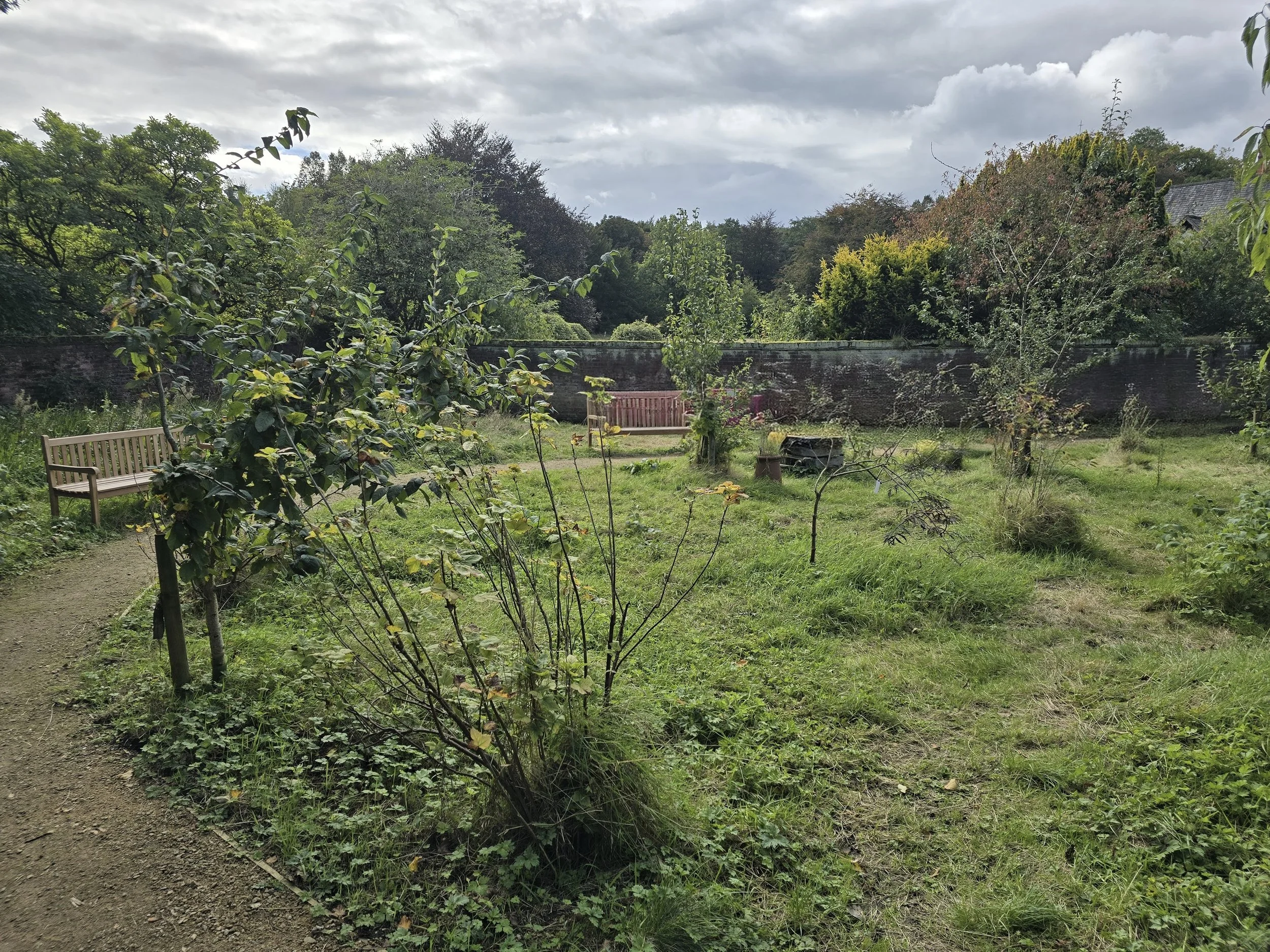Caring for Our Common Home:
A Decade of Change in the UK
by David Richardson, Peace through Justice Worker
Ten years ago, Pope Francis’ encyclical Laudato Si’: On Care for Our Common Home echoed across the United Kingdom and around the world. It offered an invitation to reflect on our relationship with God’s creation and was a call to not only think differently but to live differently. That message has taken root here in the U.K, shaping a decade of ecological awareness, action, and collaboration.
Eco parishes and community gardens are slowly emerging, offering a sense of connection with the land. Projects to reduce waste, share resources, and live more lightly on the earth are becoming part of parish life. Over 4,500 Catholic churches and schools are now powered by renewable gas and electricity through the energy procurement company Inter-Diocesan Fuel Management Ltd. This is one sign of how faith communities are making practical choices for a better future.
The Catholic Agency for Overseas Development’s (CAFOD) LiveSimply initiative has given structure and encouragement to this movement, helping communities live in ways that are simple, sustainable, and in solidarity with the poor. The framework invites us to consider what it means to live responsibly today. More than 100 schools have achieved the LiveSimply award, with over 30,000 young people involved. Young people are beginning to see their place in the world differently. In schools, our students are starting to form eco groups and encourage their communities to live differently. They are not only responding to Laudato Si’ they are taking it forward.
A growing network of Laudato Si’ Animators has emerged to support and encourage this journey. In parishes and dioceses, they offer a voice, helping others to deepen their ecological spirituality, adopt more sustainable practices, and speak out for climate justice. This reminds us that change often begins with small acts, shared stories, and the encouragement of a community walking the same path.
One of the most significant contributions of Laudato Si’ has been how it has reframed our understanding of environmental care. Previously, ecological concern was often seen as a matter of personal choice. Pope Francis helped us see it instead as a question of justice. The damage done to the earth is not shared equally. It falls most heavily on the poor and vulnerable. To care for creation is not simply to be kind. It is to be just. It is to ensure that all people, now and in the future, can live in dignity within a healthy environment.
The concept of integral ecology, recognising that environmental, social, economic, and spiritual well-being are interconnected, has become more prominent in how many communities in the U.K. reflect and act. The phrases “the cry of the earth and the cry of the poor” is influencing our faith and choices, calling us to hear both as one and the same cry. This growing awareness has started conversations about fossil fuel divestment and climate finance. By 2025, 12 of 22 Catholic dioceses in England and Wales and all eight Scottish dioceses had divested from fossil fuels. Religious orders and Catholic leaders, including Bishop John Arnold, have also called for polluter taxes to fund global climate finance.
The impact of Laudato Si’ has extended beyond the Catholic Church. Its universal themes, moral clarity and compassion, have echoed with many Christian denominations who have responded in ways ranging from formal endorsements of Laudato Si’ to practical actions rooted in shared values.
In my local interfaith group, the encyclical has also sparked meaningful engagement among non-Christian faith communities. Jewish, Muslim, and Sikh groups in the U.K. have found that its message echoes their own teachings on stewardship and care for creation. Laudato Si’ offers a framework where different faiths can share values and build bridges, fostering a deeper sense of shared purpose across religious traditions.
One of the clearest physical responses to Laudato Si’ can be found at Wardley Hall in the Diocese of Salford. There, the Laudato Si’ Centre welcomes people to explore practical responses to climate change. Since 2019, over 3,000 visitors, such as schoolchildren, parish groups, and community organisations, have gone to learn, reflect, and experience a vision of integral ecology brought to life.
Laudato Si’ has made a lasting contribution to the way we talk about the environment in the U.K. It has introduced language, like “ecological conversion” and “integral ecology,” that connects care for the earth with deeper ethical and spiritual questions. These terms have enriched our vocabulary, allowing us to speak more clearly and more compassionately about what is at stake. They remind us that this is not just about environmentalism; it is about the kind of people we are becoming, and the kind of world we are shaping for those who come after us.
As we mark this ten-year milestone, we are invited not only to look back with gratitude but to look forward with intention. Laudato Si’ offers us more than a roadmap; it offers a vision rooted in justice, community, and hope. It is a call to see differently, live differently, and walk more gently on the earth. Here in the U.K. and beyond, the journey is not over. What more might each of us do, within our communities and within ourselves, to care for our common home?
All photos taken at the Laudato Si’ Centre at Wardley Hall, Manchester, United Kingdom.
This article appeared in the Summer 2025 issue of Living Peace.



